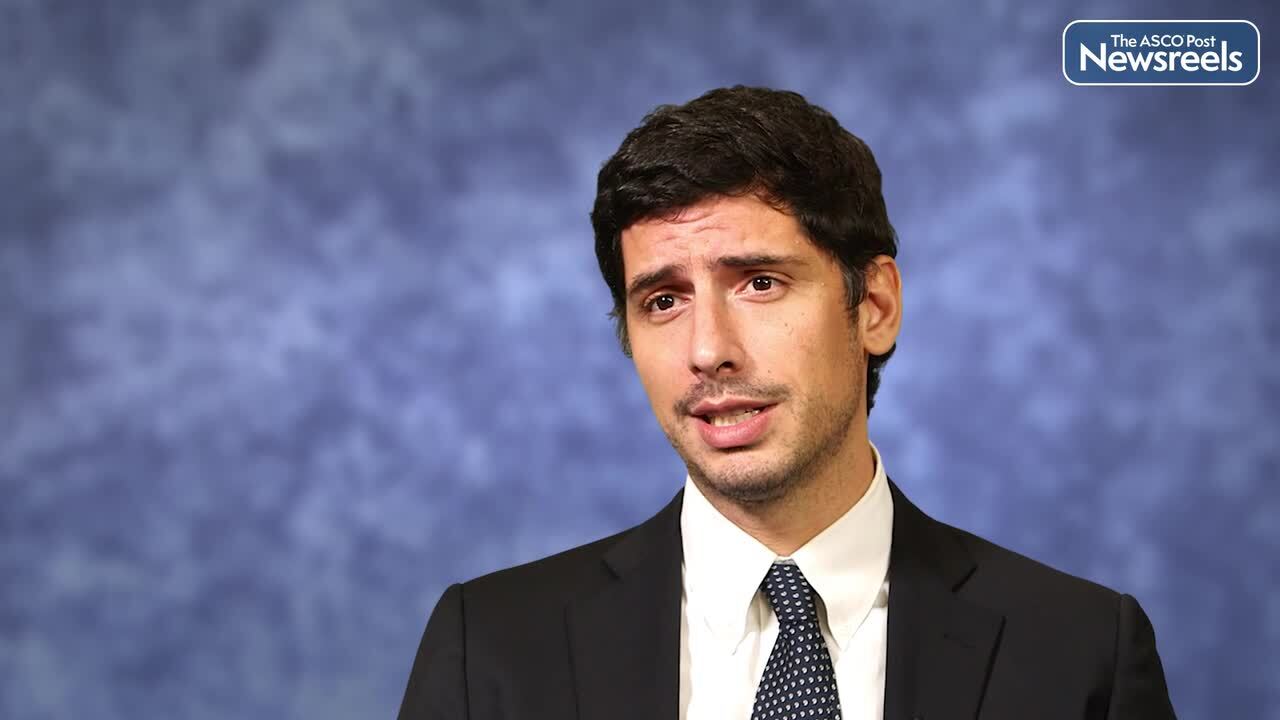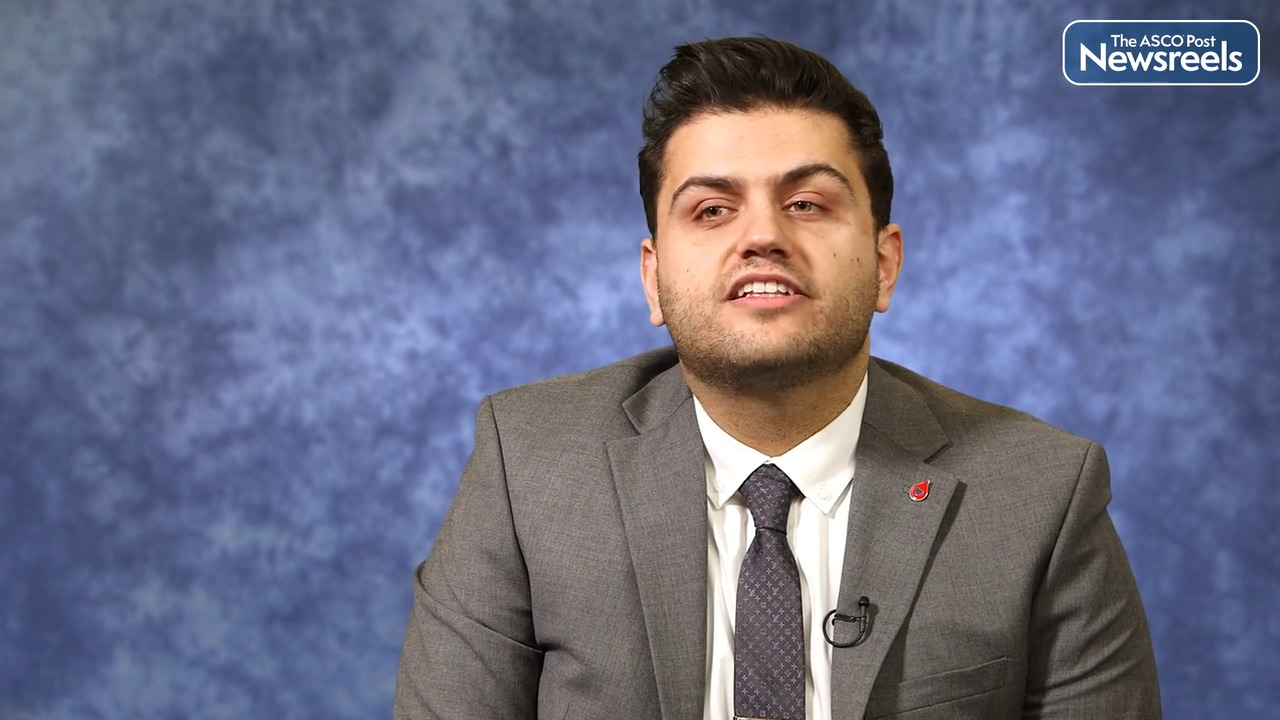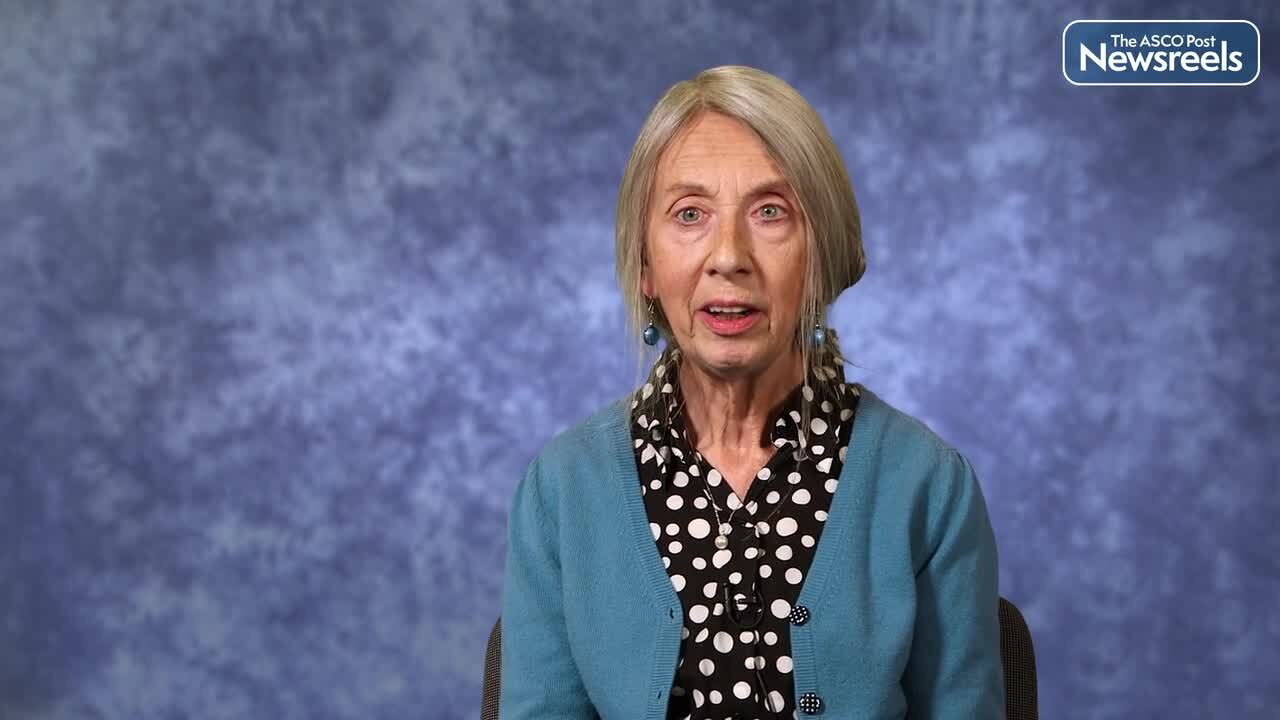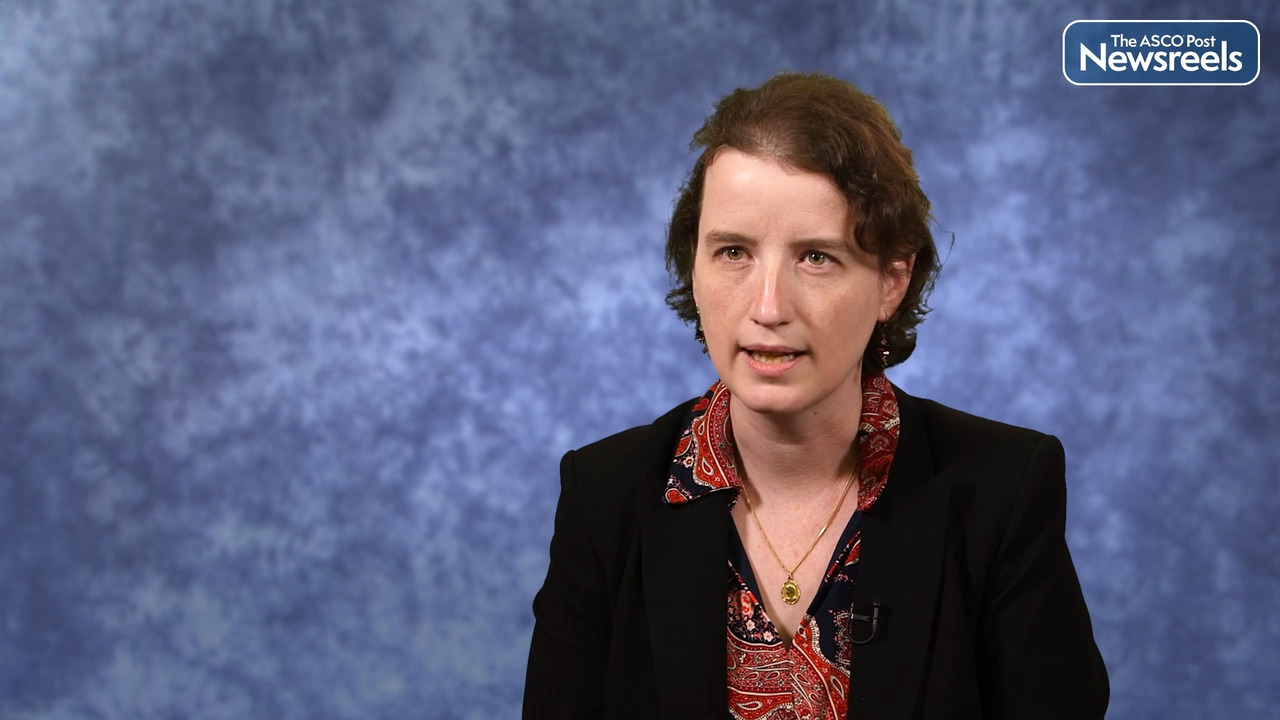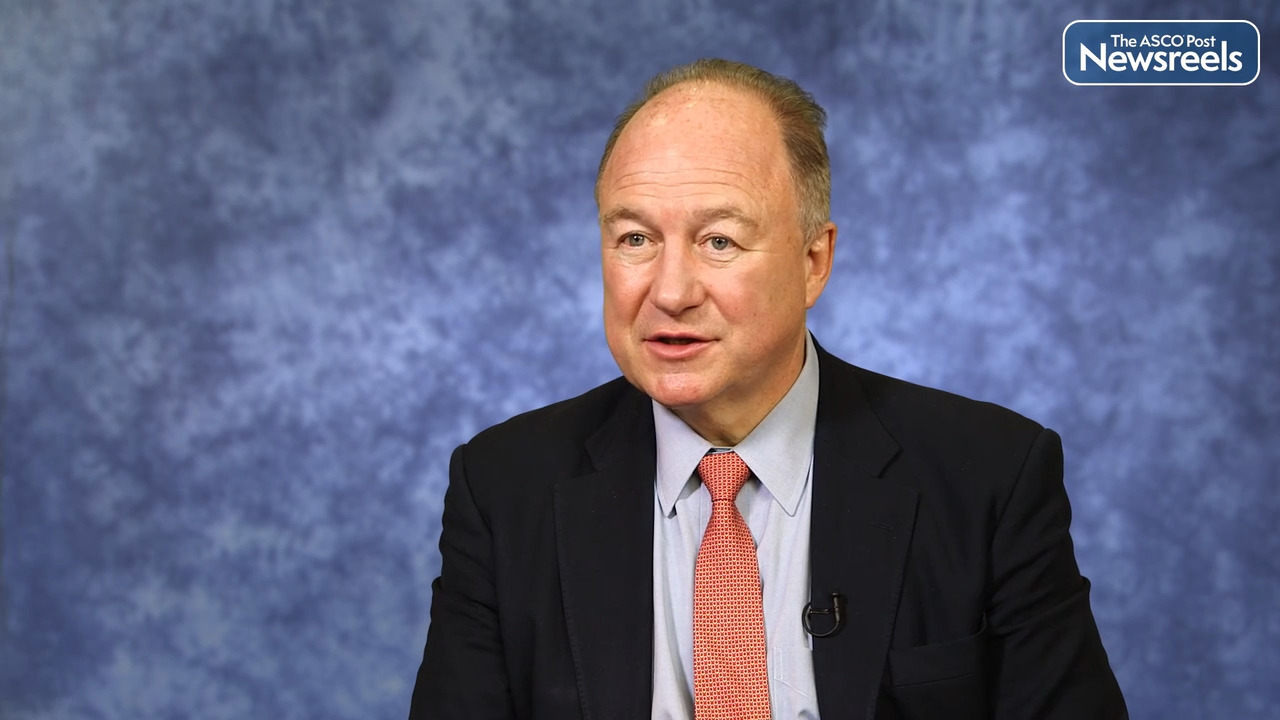Paolo F. Caimi, MD, on DLBCL: Outcomes After R-ICE Chemoimmunotherapy
2022 ASH Annual Meeting and Exposition
Paolo F. Caimi, MD, of the Taussig Cancer Institute, Cleveland Clinic, discusses new findings showing that patients with diffuse large B-cell lymphoma (DLBCL) who achieve a complete response after salvage therapy with rituximab, ifosfamide, carboplatin, and etoposide (R-ICE) can achieve long-term disease control, regardless of the time to relapse from initial therapy, particularly if they proceed to autologous stem cell transplant (ASCT). These results suggest that second-line chemotherapy followed by ASCT and/or CAR T-cell therapy for chemosensitive and chemorefractory patients may maximize patient outcomes, regardless of time to relapse (Abstract 156).
Transcript
Disclaimer: This video transcript has not been proofread or edited and may contain errors.
We found that the proportion of patients that have early relapse or refractory disease after R-CHOP or dose adjusted EPOCH that actually achieve a complete remission after R-ICE is approximately 30% of patients. And that those patients can, when they achieve a complete remission, and then go on to an autologous transplant, have comparable progression-free survival and overall survival with respect to patients who are late relapsers who are generally considered to be more chemosensitive.
The implication of these findings is primarily to show that among those who have early relapse, there's a small portion of patients, about a third of patients, who are still chemosensitive who could potentially, if they achieve a complete remission, proceed to an autologous transplant and have expected progression for survival that's about 50% at four years.
The importance of this is that in a current scenario where CAR Ts are preferred for patients with early relapse, we are still, because of logistics, because of access, and because of the global access to CAR T-cells, there's still patients that cannot access CAR T-cells before receiving salvage chemotherapy, or cannot access to CAR T-cells at all.
So we wanted to document what happens with a chemosensitive patient that has received R-ICE, achieves complete remission, and whether an autologous transplant can provide them long-term disease control, which we found. I think it is in line, in terms of results, of what we see on the recent ZUMA-7 and TRANSFORM trials showing the superiority of CAR Ts in terms of event for survival with respect to salvage chemotherapy for a population that is overall expected to be more chemo-resistant.
However, it shows that those who happen to be chemosensitive among those that are early relapsers can have long-term disease control. Future studies will include further refinement of the assessments of the outcomes of patients who achieve a partial remission and then went on to receive a transplant. And we think that with this data, our perspective is that we should evaluate whether CAR Ts, compared to an autologous transplant used as consolidation for patients who have a complete response or a partial response, can achieve even better outcomes than those that are achieved by adding a transplant as consolidation. I think that will validate whether adding another type of treatment modalities such as immune cell effector cells for consolidation could provide even better long-term outcomes.
Related Videos
The ASCO Post Staff
Francesco Maura, MD, of the University of Miami, Sylvester Comprehensive Cancer Center, discusses his team’s findings in which they defined a comprehensive catalogue of genomic determinants of response to DKRd (carfilzomib, lenalidomide, dexamethasone) in newly diagnosed multiple myeloma. The researchers have identified a number of new genomic alterations that explain resistance to the agents currently used in combination regimens (Abstract 470).
The ASCO Post Staff
Abdul Rahman Al Armashi, MD, of Seidman Cancer Center, Case Western University, University Hospitals Cleveland Medical Center, discusses a retrospective analysis, using a CDC database, in one of the largest subgroup-based racial population studies analyzing mortality trends in patients with acute myeloid leukemia (AML). Between 2000 and 2019, AML mortality was the highest in Whites and the lowest in American Indians or Alaska Natives. The highest rate of increase in mortality was seen in Asians or Pacific Islanders. Dr. Al Armashi talks about the many variables that might contribute to these inequalities (Abstract 600).
The ASCO Post Staff
Irene Roberts, MD, of Oxford’s Weatherall Institute of Molecular Medicine, discusses children with Down syndrome, who have a more than 100-fold increased risk of developing acute myeloid leukemia before their fourth birthday compared to children without Down syndrome. Their risk of acute lymphoblastic leukemia is also increased by around 30-fold. Dr. Roberts details current knowledge about the biologic and molecular basis of this relationship between leukemia and Down syndrome, the role of trisomy 21 in leukemogenesis, and the clinical implications of these findings.
The ASCO Post Staff
Eileen M. Boyle, MD, PhD, of the Perlmutter Cancer Center, NYU Langone Health, discusses Fc-mediated antibody effector function, inflammation resolution, and oligoclonality and their role in predicting sustained measurable residual disease negativity in patients with newly diagnosed multiple myeloma who were treated with immunotherapy regimens. For the first time, an analysis of T-cell receptors shows that oligoclonal profiles seen on treatment may influence the fitness of the immune response (Abstract 100).
The ASCO Post Staff
Paul G. Richardson, MD, of the Dana-Farber Cancer Institute, discusses preliminary results from the dose-expansion phase of the CC-92480-MM-001 Trial, which showed promising efficacy in patients with relapsed and refractory multiple myeloma, including those with prior BCMA-targeted therapies. Patients in these two groups had an overall response rate of 40% and 50%, respectively. The results support the development of mezigdomide, currently being evaluated in combination with standard therapies in multiple myeloma as part of a large, ongoing phase I/II trial (NCT03989414) and planned phase III studies (Abstract 568).
